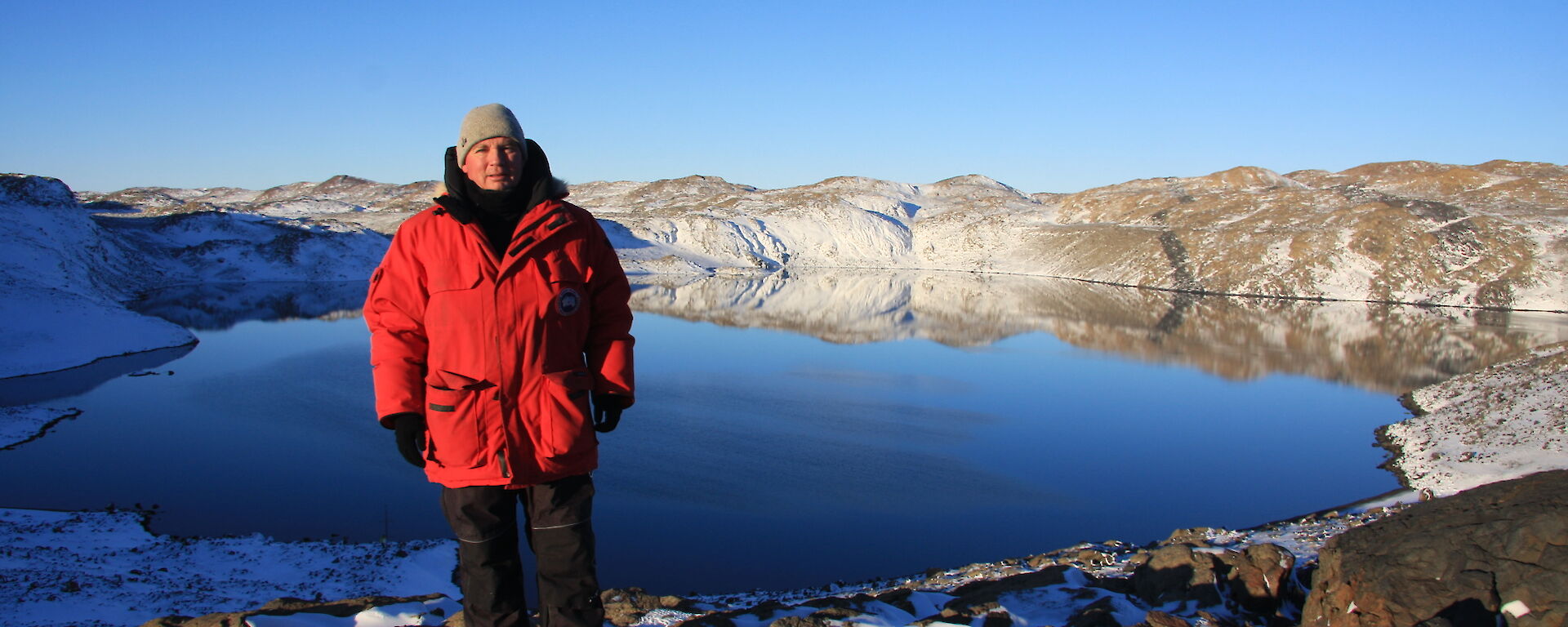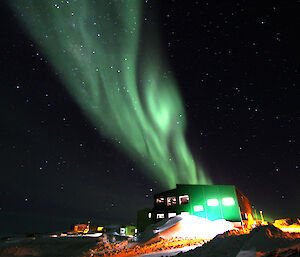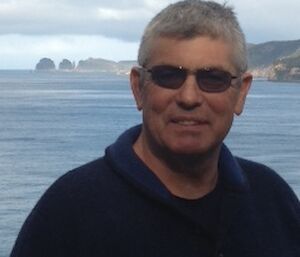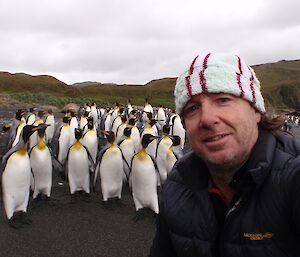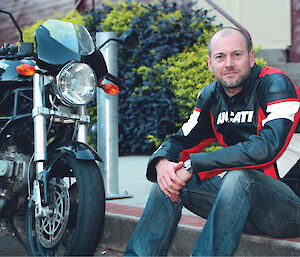Allan Cooney — Casey Station Leader: If I had to describe Antarctica in one word, it would be elemental. The elements are there full time, the wind, the cold, the astonishing sky at night, the Southern Ocean, all of those things.
Bill De Bruyn — Davis Station Leader (summer): If I had to describe Antarctica in one or two words, it would be the future. I see things happening in Antarctica that I think should spill across into the rest of the world. I see collaborative nations working together to achieve common aims and I would really like to see that spread across the rest of the world.
Jason Ahrens — Davis Station Leader (winter): If I had to describe Antarctica in one or two words, it’s near impossible. I just can’t do it. I have to sit down and have long conversations about all my experiences and what Antarctica means to me. It’s just a great great place.
Mark Gasson — Macquarie Island Station Leader: If I had to describe Macquarie Island in one word I would say it’s unique. There’s nowhere else like it on earth. It’s been formed by two plates colliding under the ocean which has pushed it up above the ocean surface, it’s absolutely amazing.
Allan Cooney — Casey Station Leader
My name is Allan Cooney, I’ll be the station leader at Casey for 2013. I am a Queenslander, home for me is Toowoomba, but I have spent the last 8 years in the Northern Territory.
I was a professional farmer until I was 40. The last 10 years I have been a senior manager, CEO, executive director. I applied for the position for the Antarctic Division because of a friend of mine who did a tour down here as a Doctor, he inspired me with an interest to go to Antarctica.
There’s the usual projects — there’s a very busy aviation program running, there’s the usual operational things about maintaining and refreshing the facilities at the station. There’s about 17 science projects running, from things like atmospheric research to investigation of the moss communities, things like remediation of our human footprint in Antarctica. So there’s whole suite of things.
I expect it will be interesting and challenging and all of those things as well, but what a unique experience. One of the rare places in the world that is untouched really by human hands.
Bill De Bruyn — Davis Station Leader (summer)
My name is Bill De Bruyn, I’m going to be the Davis station leader for this year and I range from Melbourne, Victoria.
My background? I am a policeman by trade, with over 40 years experience now, skills not unlike that which required for a station leader. I have been down before — I did 14 months in 2008–2009, again as the station leader at Davis, so it will be a bit like going home.
This year Davis has got a huge program. There’s a lot of science, deep field science where we are establishing equipment to monitor climate change. We’ve got marine science happening, so we’ll have the boats out in between the icebergs. We’ve got a lot of on station stuff, marine science, we’ll be looking at penguins and petrels and albatrosses. It’s a huge scientific program in a very short period.
What attracts me to the Antarctic? Predominantly it’s the people, secondly it’s the science and third it’s the environment, although I could re-juggle those three quite easily. But the three of them make a mixture that gets into your system.
Jason Ahrens — Davis Station Leader (winter)
I am Jason Ahrens and I am going to Davis station for the winter. I’ve recently relocated from North East Victoria to Tasmania, where in Victoria I spent most of my time in the building and construction industry.
Having spent 2007 at Davis as the Deputy Station Leader and the Building Services Supervisor I got to see exactly how things operate and thought this would be a great opportunity for me to have a go. As I am only in Davis for the winter, our science programs are limited to sea ice measurements and some penguin and seal counts which are carried out every year.
This winter is a long winter with the shortened summer season, so we are going to be remote and isolated for around 10 months. So that in itself will be a challenge for everyone on station.
The environment in Antarctica and the lifestyle, the people are absolutely fantastic, they are a great diverse group of people. And there’s quite a few challenges while we are down in Antarctica — the remoteness, the weather, the environment and all those things that go with it and I just find it rewarding and enjoy it.
Mark Gasson — Macquarie Island Station Leader
My name is Mark Gasson, I am originally from London in the UK and now I live in Sydney. I’m going to Macquarie Island this season.
My background is quite diverse. I used to be a philosophy lecturer in the UK and then I became a blacksmith. I’ve also worked for the Royal National Lifeboat Institution for 10 years, as a rescue boat skipper, and then rescue boat captain for NSW marine rescue. I am now the CEO of the Blue Rock Foundation, a charity that provides assistance for disadvantaged young people.
We've got a number of interesting projects taking place over the next year, the biggest of which is the continuation of the MIPEP project (the Macquarie Island Pest Eradication Project), which is basically removal of vertebrate pests that were introduced in the late 19th century by sealers. The removal of the rabbits has meant that the vegetation is growing back at an increased rate so there will be scientists looking at how that’s impacting on the environment. There will be scientists gathering ecotoxilogical data, as well as some research scientists looking at albatross and petrel.
Macquarie Island is absolutely beautiful — it’s an outcrop of rock in the middle of the Southern Ocean, it’s very very green, covered in an incredible array of wildlife and birds, seals , penguins, petrels, albatrosses. It’s absolutely stunning.

